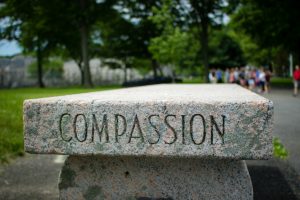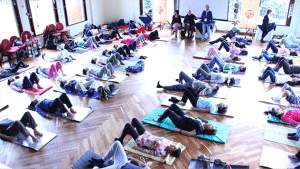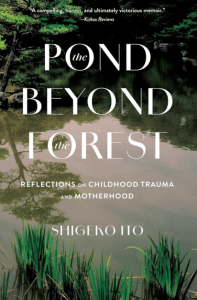Trauma-Informed Blog
New content weekly! Survivor Stories, Research Articles, Poetry, and more written by clinicians, coaches, survivors, and mental health professionals.

Featured Partner: STAR Network
Discover more about overcoming Toxic Abusive Relationships (TAR), trauma, and building resilience with our featured partner and ally, STAR Network. Their resources empower you to embrace your strength and transformation – you are not a victim; you are now a STAR, a Survivor of Toxic Abusive Relationships. Click the banner or visit STAR Network to explore their resources and start your journey to healing and empowerment today.
Remember...
CPTSD Foundation is not crisis care. If you ever feel you are in crisis please reach out to an online or local crisis resource, or contact your mental health or medical provider. CPTSD Foundation provides a tertiary means of support; adjunctive care. Our industry-leading ancillary products and services are intended to supplement individual therapy. Nothing on this website or any associated CPTSD Foundation websites, is a replacement for or supersedes the direction of your medical or mental health provider, nor is anything on this or any associated CPTSD Foundation website a diagnosis, treatment plan, advice, or care for any medical or mental health illness, condition, or disease.
The Power of “And”
It was easy to fall into a language of extremes to define the world around me For most of my life, I’ve been an “all or nothing” kind of gal. Either all in or all out, I left no space for the...
Struggling with Trauma memories? This is for you.
How Finding the Right Therapist Was The Best Thing I did. Hey there. How are you doing today? Are you enjoying the weekend? In this article, I’m going to share with you how getting the right...
The Ancestral Fear Lurking Beneath Your Bed
Why the edge of the bed triggers calm in some and alarm in others: evolutionary vigilance, trauma-conditioned sleep behaviors, and practical, trauma-informed steps that help the body stand down.
Creating Your Tribe: Building a Support System for Your Return to Work
Returning to work after a break can feel like stepping onto a tightrope. While you’re focused on moving forward, having a strong support system can be the safety net that gives you confidence and...
Heavy Emptiness: The Weight of Attachment Wounds
I don't always feel hopeful or strong. Abandoned insecurities masquerade as anxiety Splintering me into a million shards I seek safety in an impossibility ...
How a Song Can Set My Day Back By Decades
Do you listen to music? Music and the Arts are wonderful pastimes, and many of us enjoy relaxing to songs streaming in our ears. I don’t leave the house without my earbuds. My kids have fun...
Embracing My Superpowers as an Empath and Highly Sensitive Person
Recently, while I was waiting at a crowded restaurant, I found myself interacting with a toddler and his mother. I smiled, played peek-a-boo, and gave him a playful "Hello!" At first, he hid...
The Role of Rest in Career Development: Why Downregulation is Essential for Professional Growth
Understanding the vital connection between rest, regulation, and career success In our achievement-oriented professional culture, rest is often viewed as a luxury or a sign of reduced commitment...
Personal Power
PERSONAL POWERBy Jesse Donahue 2024 © Characterized by a lack of desire or an inability to focus... Here I go winging it, with no outline to follow. The development of this paper is a reflection...
Are You Living On Auto-Pilot? 5 Proven Ways to Get Back to the Lane of the Living
Hey, how are you doing today? Are you having a good day, or a not-so-good day? Have you stopped to take a break and take care of yourself? We live in a fast-paced world, where results appear more...
Shake It Off: TRE for Stress and Trauma Relief
Concerns about the impacts of stress and trauma on daily life are widespread. Unfortunately, people sometimes try one technique after another, hoping for relief but never attaining it. One...
My Book Journey: Making the Invisible Visible
This is my first—and quite possibly my last—book, which I see as my legacy project. This writing journey has been long and arduous, but persistence ultimately prevailed, and I finally reached the...

What is Complex Post-Traumatic Stress Disorder?
“Complex PTSD comes in response to chronic traumatization over the course of months or, more often, years. This can include emotional, physical, and/or sexual abuses, domestic violence, living in a war zone, being held captive, human trafficking, and other organized rings of abuse, and more. While there are exceptional circumstances where adults develop C-PTSD, it is most often seen in those whose trauma occurred in childhood”.












